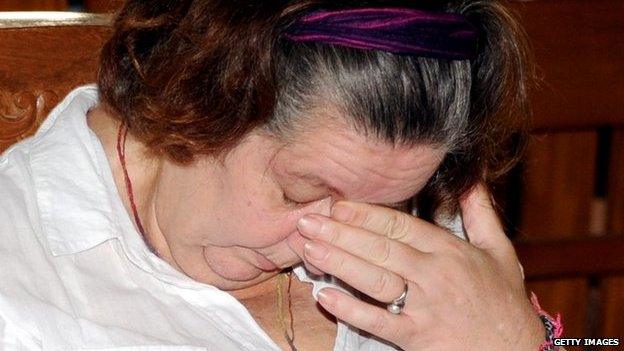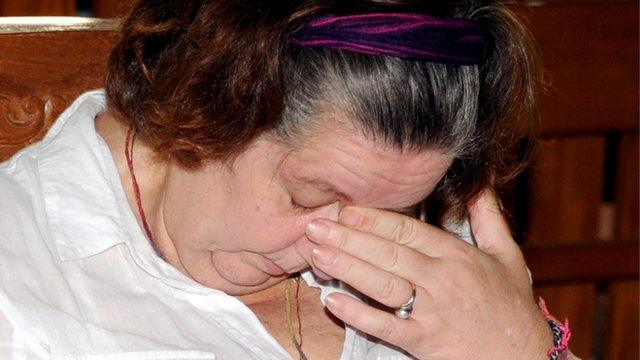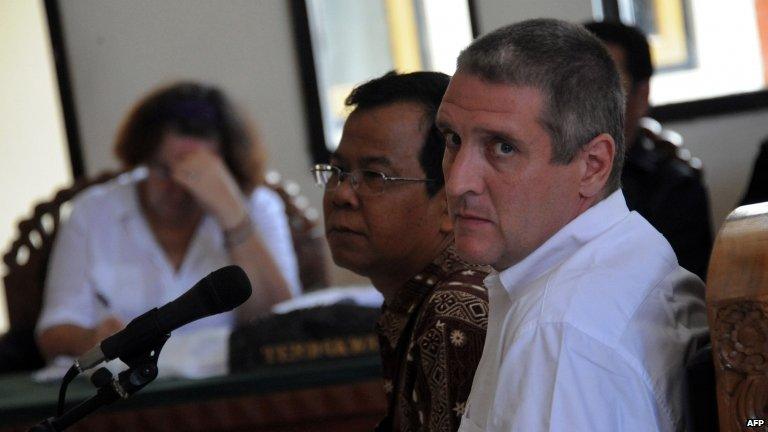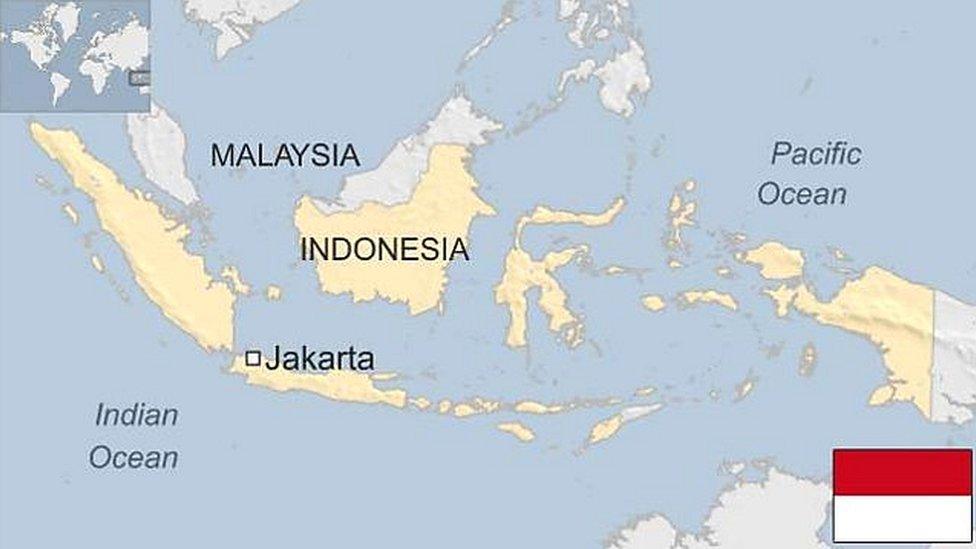Bali death row: Lindsay Sandiford to await appeal decision
- Published

Lindsay Sandiford's lawyers argued her case require a detailed knowledge of Indonesian law
A British woman on death row in Indonesia who is challenging the government's policy not to fund Britons facing capital charges abroad must wait to discover if she succeeded.
Lindsay Sandiford, 57, from Cheltenham was convicted last year of trafficking drugs into the resort island of Bali.
Five Supreme Court judges, external heard her legal team argue she is "effectively without legal representation".
The justices decided to reserve their judgement until a later date.
Sandiford's QC Aiden O'Neill told Lords Mance, Clarke, Sumption, Carnwath and Toulson there was the chance of submitting a petition for clemency to the Indonesian government, but it "requires a close knowledge of the Indonesian judicial and political situation".
He added: "The appellant is however effectively without legal representation in Indonesia to allow her to pursue this line of judicial review, and she has no access to any further private funding which might otherwise allow her to instruct a suitably qualified lawyer."
Last April, three Court of Appeal judges ruled that the government's policy of not providing funding for legal representation to any British national who faced criminal proceedings abroad - even in death penalty cases - was not unlawful.
The decision followed an earlier High Court ruling that the government was not legally obliged to pay for "an adequate lawyer" to represent Sandiford.
The grandmother was sentenced to death by firing squad in January 2013 after being found with cocaine worth an estimated £1.6m as she arrived in Bali on a flight from Bangkok, Thailand, in May 2012.
She appealed, but her case was rejected by the High Court of Denpasar and, in August, a three-judge panel at the Indonesian Supreme Court in Jakarta also rejected her appeal.
Sandiford claims she was forced to transport the drugs to protect her children, whose safety was at stake.
A reserved judgement is one where the judges do not give their decision on the day.
It usually indicates they need some time to reflect on the submissions made in court and is normally the case in complicated and long appeals.
- Published31 January 2013

- Published29 January 2013

- Published22 January 2013

- Published25 October 2024
